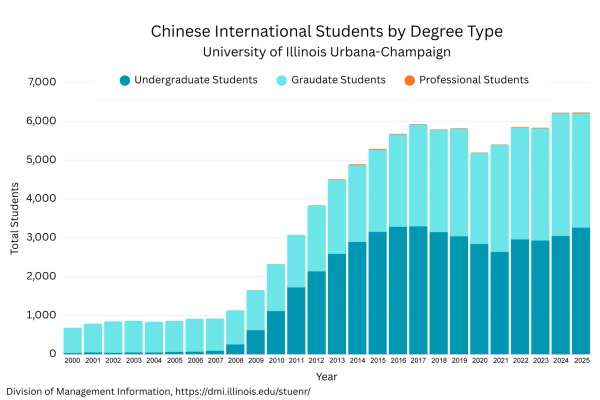Try your hand at class participation

Mar 11, 2015
In the middle of a molecular and cellular biology class, my professor paused the lecture, as he often does, and directed a simple question about the material to the class. One would think that in an advanced level genetics course, the students attending would be actively willing to participate and learn, but this was not the case.
His question was followed, as per usual, by silence, silence and more silence until one of four people who always answer the professor’s questions finally raised her hand and spoke up.
Our MCB 317 professor structures his lecture like a seminar with questions to guide us through how a real scientist answers questions in research. The professor poses questions in this way for a reason — to effectively help us learn the material. We are here to learn, after all, and being engaged in discussions with the professor is an important aspect of this learning. Thus, as attendees of a higher institution for learning, we should be more actively engaged in our education.
I began to wonder whether or not something was actually physically wrong with the other students in the room. The professor’s question was very straightforward and the answer to it was even on the slideshow being projected on the board.
I am part of the 1 percent of the class that actually answers the professor’s questions because I believe that avoiding the awkward pauses makes the lecture go by more quickly and smoothly. Additionally, I, and many others, feel that speaking up in class prevents boredom and keeps us interested in the class material. In fact, studies show that students who actively participate in class and discussions are more motivated, learn better, and achieve higher scores than those who don’t.
Get The Daily Illini in your inbox!
But it seems most students don’t like to participate, even in the face of the simplest questions. This lack of engagement makes most of the class look meek, wimpy and incompetent and robs students of a key aspect of their learning.
Some may argue that students don’t actively raise their hands in class due to feelings of inadequacy or fear of giving a wrong answer in front of their peers. If you say something that is wrong, news flash, it’s not the end of the world and, by the end of the class, everyone will most likely have forgotten about it.
Professors should understand that as undergraduates, we are here to learn, and part of that means we don’t have all the right answers yet. Often times, wrong answers even serve as learning opportunities, so take advantage of the fact that your undergraduate career is one of the last chances you have at gaining skills from just trying.
I would argue that, in the face of a silent class, the professor would be happy with any student willing to be more active in their education.
Others also argue that some students are just shy or introverted. Nevertheless, this shouldn’t be seen as a justification because public speaking and being an engaged participant are skills all students need for the future, regardless of their majors. When your some-day employer asks you a question and you don’t answer, it is unlikely she will take mere shyness as an acceptable excuse.
The lack of participation from students also brings to light an important concept: There is more you should get out of a class than just a letter grade. One of the most absurd and narrow-minded sentiments that many students hold at the University is the idea that the grade you get in a given class and how you look on paper are what should be valued above all else. While grades are definitely important in some respects, when the class isn’t graded on participation, most students don’t see the point in speaking up.
Ideally as students, we are here not only to learn, but to develop as leaders. Building the skills necessary to do so goes beyond what you read in a textbook or what shows up on an exam. Engaging in class discussions will help us develop confidence in communication so we can become more proactive and productive versions of ourselves.
Putting yourself and your ideas out there may seem daunting, but there is a real world waiting for you after college and you need to be ready. An easy way to prepare yourself is to simply participate, and you’ll avoid boredom and learn more easily at the same time.
So let go of the reservations you have and raise your hand.
Stephanie is a junior in LAS.





